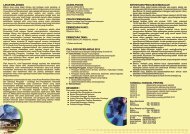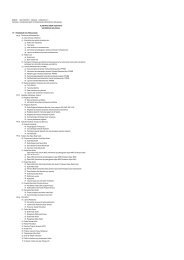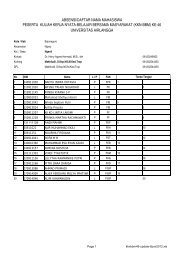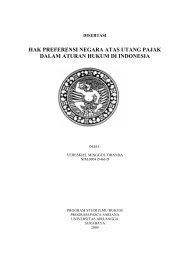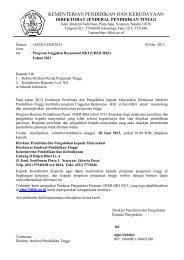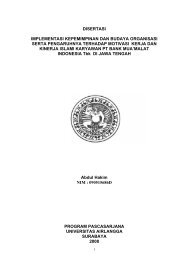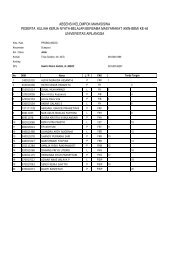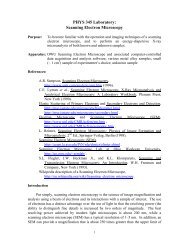Nietzsche's Naturalistic Ethics - UNAIR | E-Book Collection
Nietzsche's Naturalistic Ethics - UNAIR | E-Book Collection
Nietzsche's Naturalistic Ethics - UNAIR | E-Book Collection
You also want an ePaper? Increase the reach of your titles
YUMPU automatically turns print PDFs into web optimized ePapers that Google loves.
This, in turn, delivers two explications of “spheres of power” and thus of duties. A sphere of poweris either a person’s range of activities under such optimal conditions, or, alternatively, a person’srange of activities under constraints (“normal conditions”). Nothing depends on which explicationwe choose. A person’s pride is offended, or at least challenged, when her sphere of power isaffected, if only by somebody’s doing her a favor. This takes us to Nietzsche’s approach to duties.Nietzsche understands duties in terms of the urge to restore one’s sphere of power once affected.(Again, I omit a discussion of rights, but the same resources apply there as well.) Recall thatNietzsche states that moralities are sign languages of affects (BGE 187). This discussion aboutduties is a paradigmatic example of how Nietzsche may illuminate that idea and how his accountprovides a naturalistic explication of duties. What his account of duties explains is, as it suits anaturalistic account of duties, the behavior that we associate with the execution of duties. It does soin terms of an urge and thus in physiological terms. Needless to say, this account triggers the samequestion that arise for any ethical naturalism, namely, whether such an account provides asufficiently strong account of normativity. This question, however, goes beyond the scope of thisstudy. 2323 For discussion, see Darwall (1998), chapter 3. Nietzsche does not claim that there issome otherwise unexplained duty to preserve the spheres of power. He does not appeal to anirreducible normative force of a certain set of facts. In particular, his account of duties (and ourexplication thereof) does not, in order to find a foundation for duties, appeal to the “long ladderof rank order and value differences” (BGE 257) discussed in chapter IX of Beyond Good andEvil. If Nietzsche tried to account for duties in this way, he would open himself up to a host ofproblems arising from stipulating normativity where a naturalist like Nietzsche needs to do someexplaining. Crucially, Nietzsche appeals to an individual’s pride at the point where any suchunexplained notion of normativity could come in; that is, pride that is affected if his sphere ofpower is infringed upon. Such an appeal to pride is plausible given Nietzsche’s general outlookthat each individual aims at optimal conditions: pride is the feeling that arises from havingaccomplished this, and one’s pride is affected if one fails to accomplish it. So Nietzsche’saccount is not in a rather straightforward way question-begging.23




